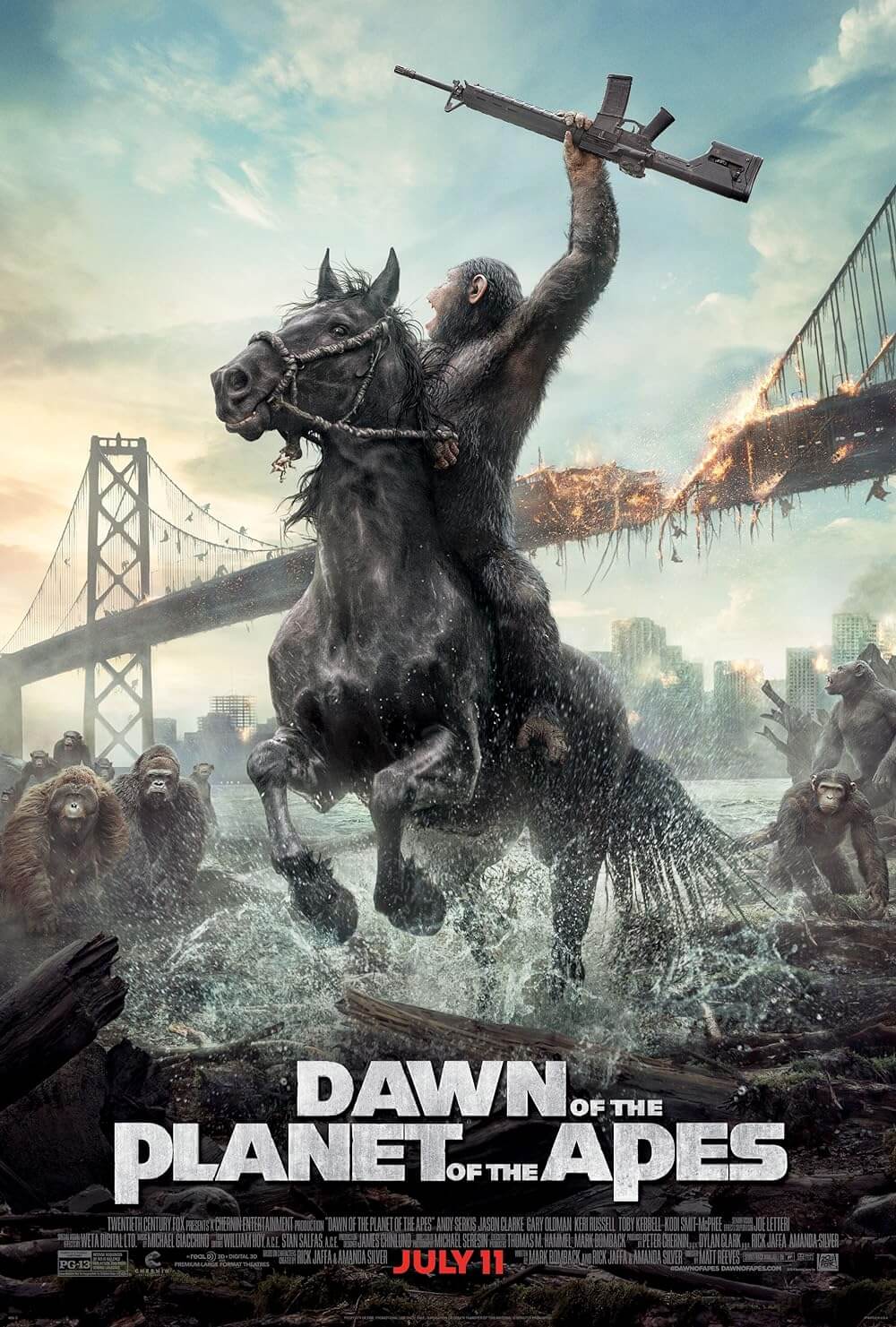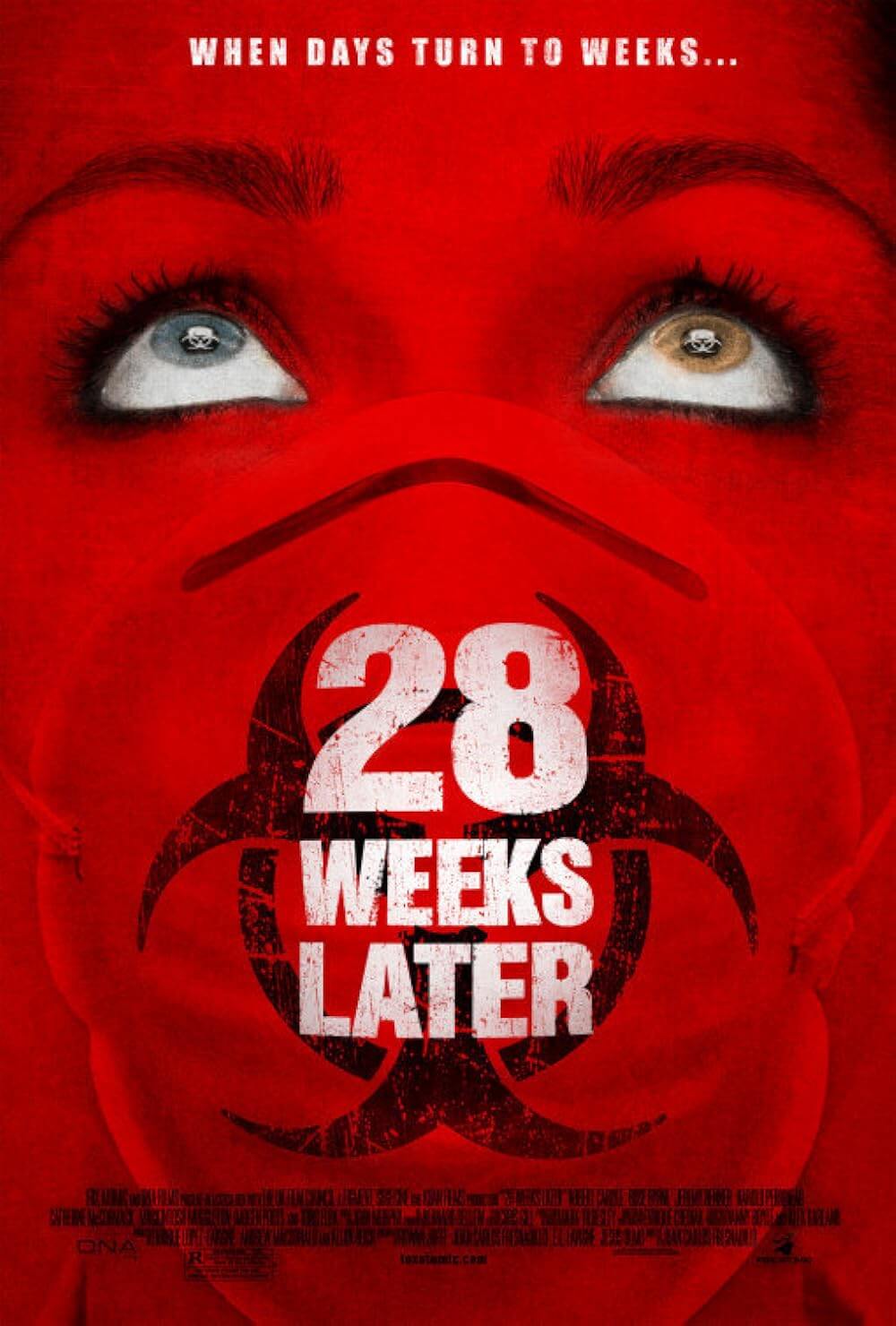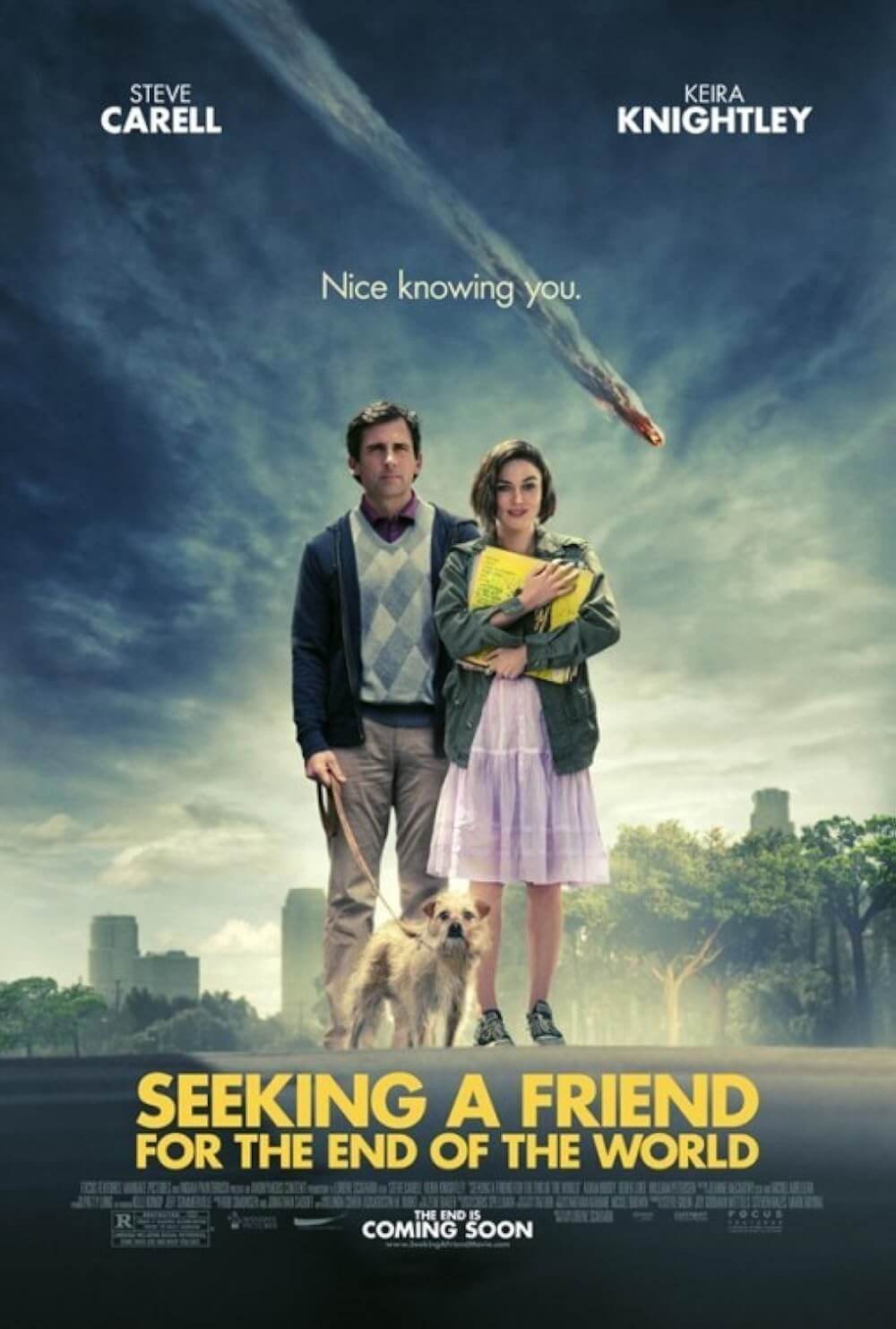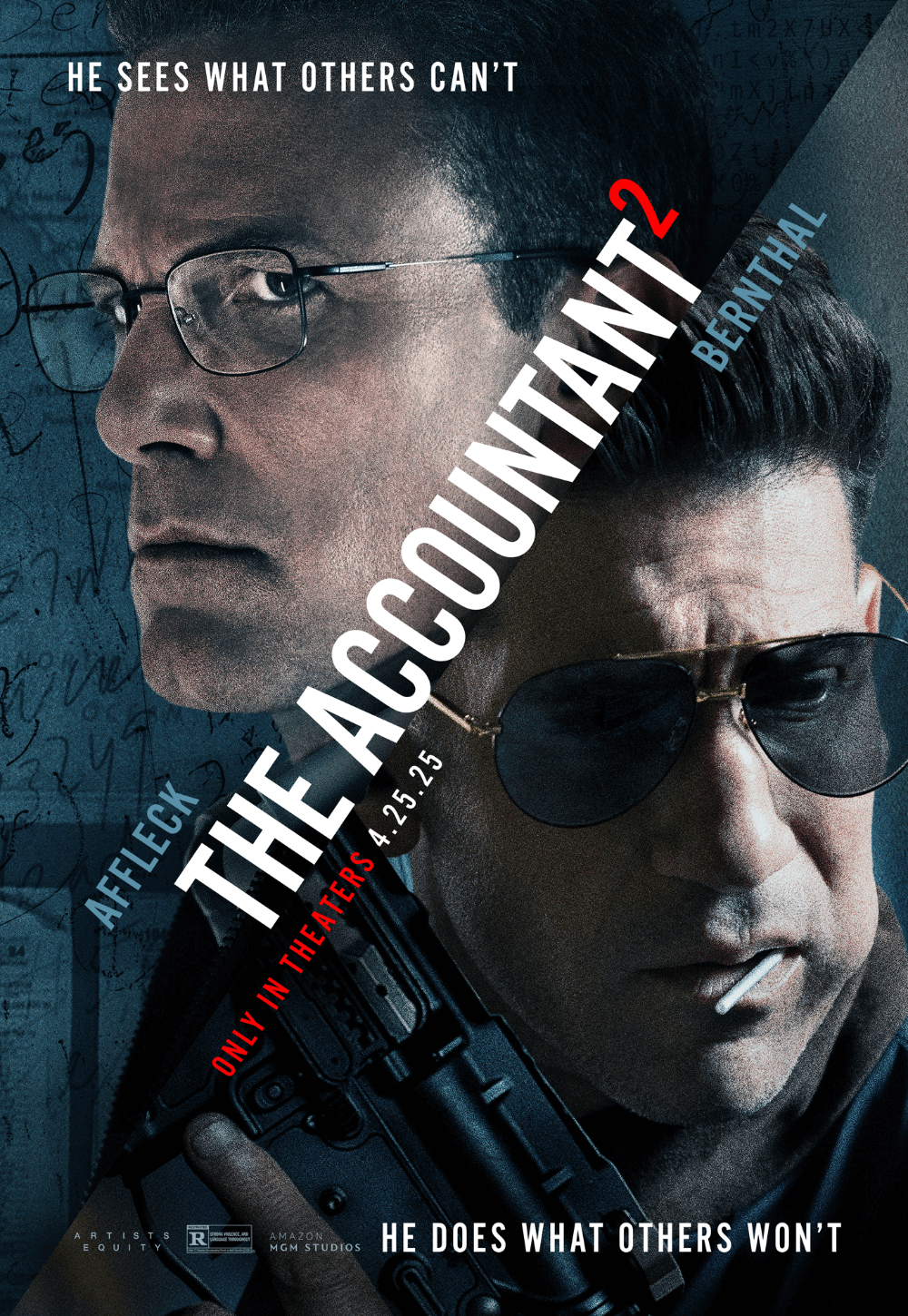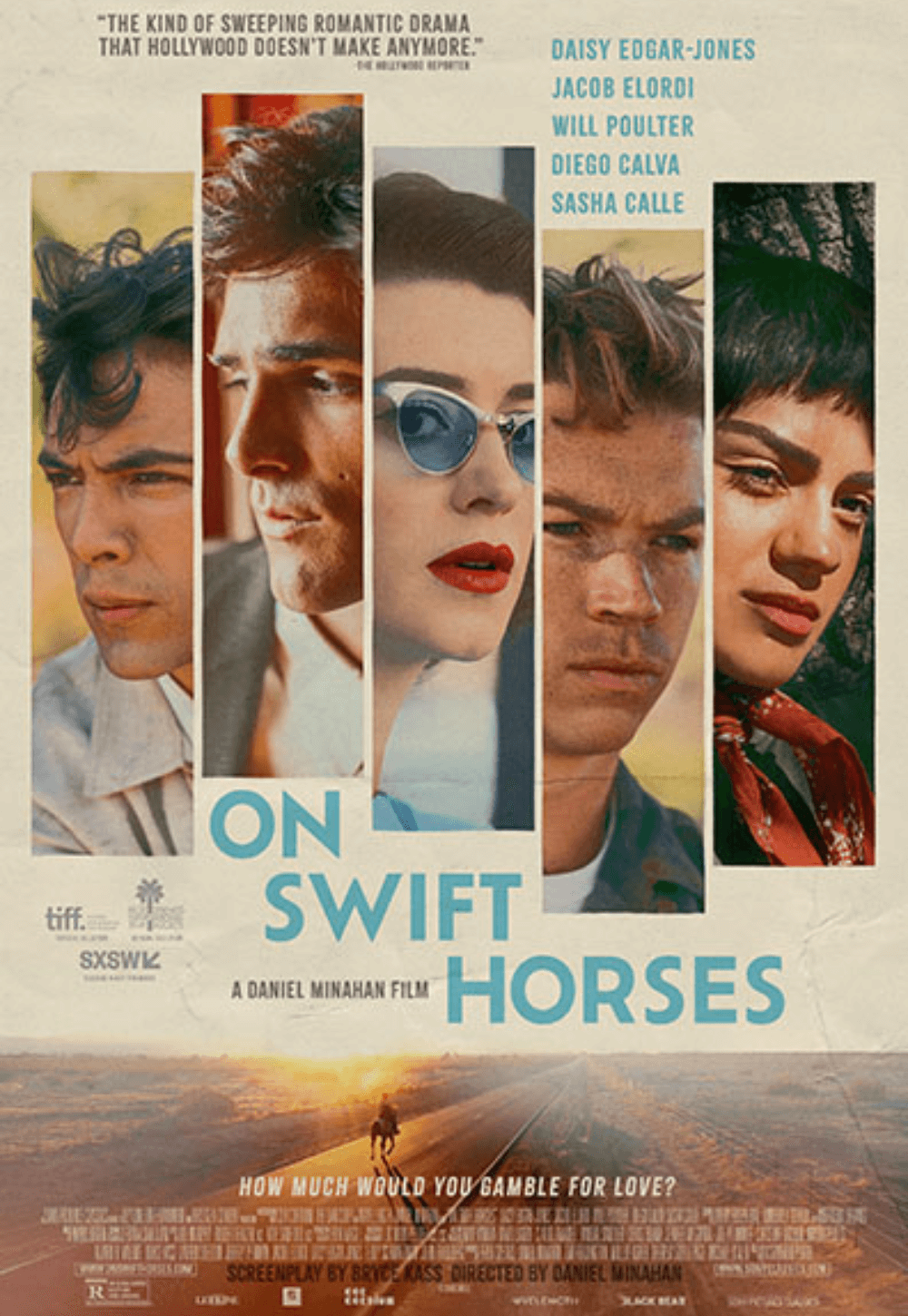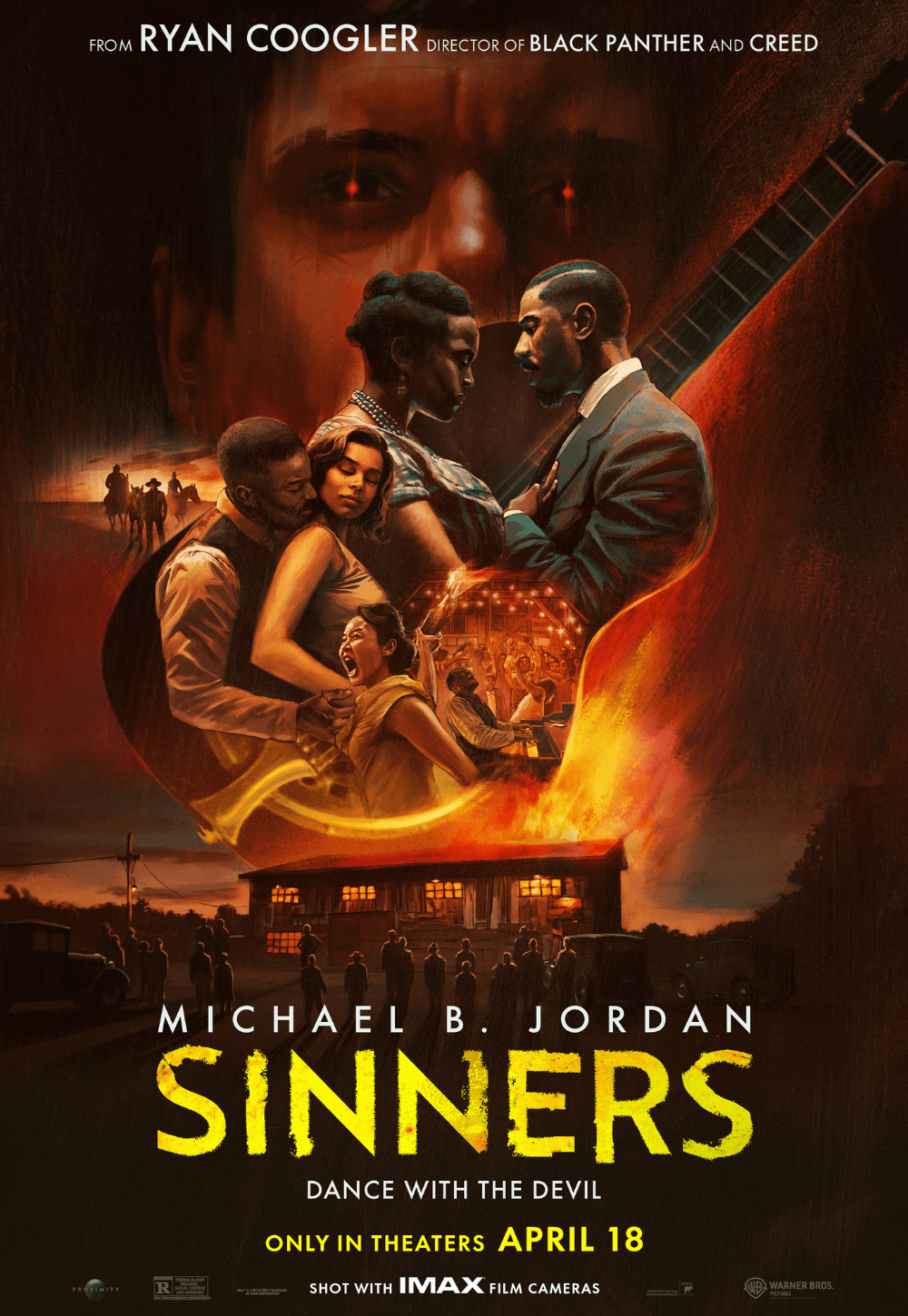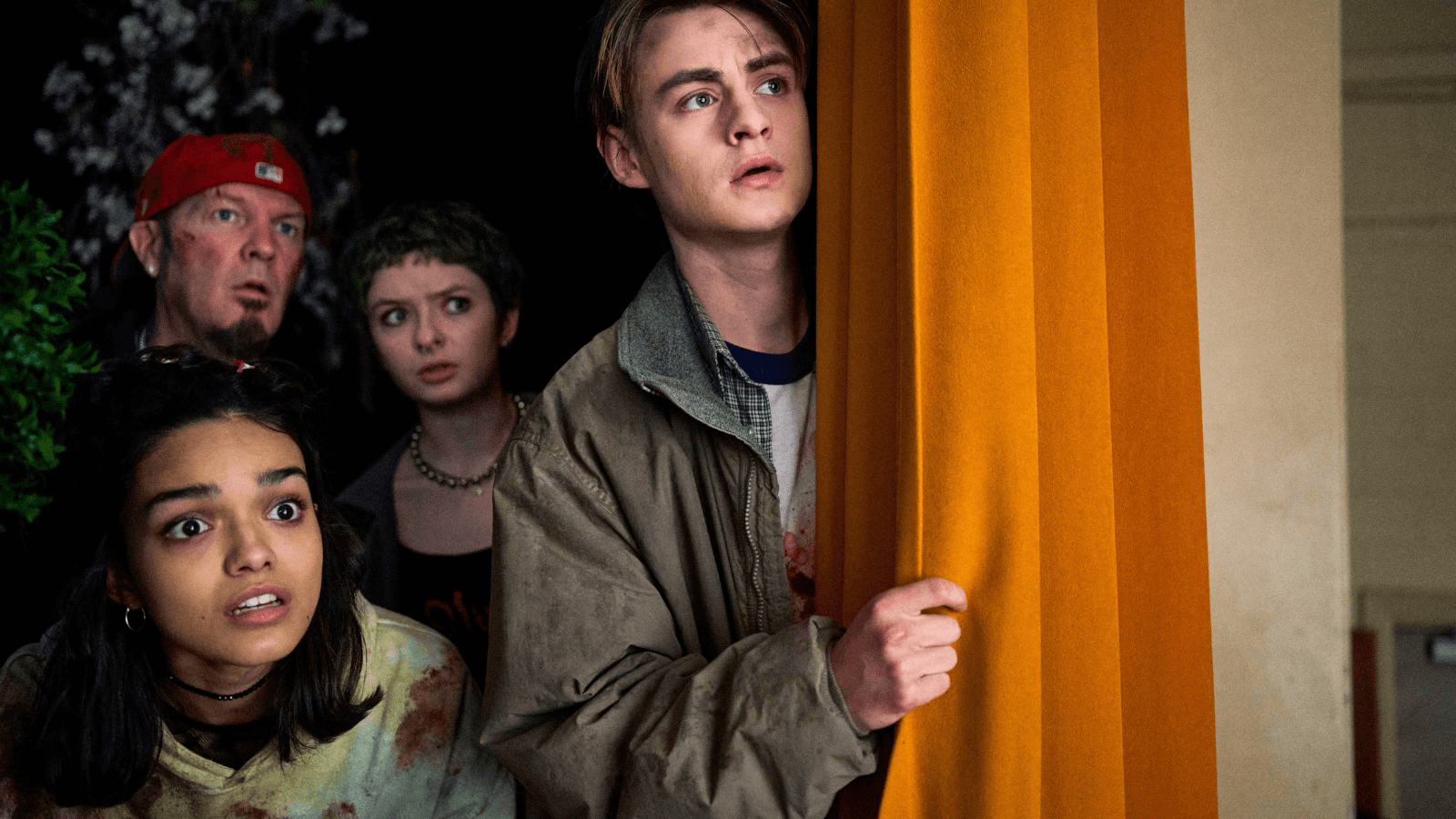
Y2K
By Brian Eggert |
Y2K, Kyle Mooney’s unabashed nostalgia trip, transports the viewer to New Year’s Eve, 1999, when some believed the world might end. The concern was that computer systems using the last two digits to represent a year might go haywire when “99” rolled over to “00” at midnight. Wild theories spread about what might happen. Would financial databases crash, leaving everyone with zeroed-out bank accounts? Would defense systems launch an arsenal of nukes, bringing about James Cameron’s Judgment Day? Frantic computer engineers raced to write code to extend years to four digits and prevent a disaster. Doomsday preppers stockpiled supplies for the apocalypse. Everyone else went about their lives, oblivious or unconcerned. And when the moment came, nothing much happened. Mooney’s movie asks the question: What if something did happen?
But that question is just a launchpad for an onslaught of ‘90s nostalgia, from AOL to dial-up, from Chumbawamba to Limp Bizkit, from video stores to mix CDs, from Tamagotchi pets to the iMac. Mooney makes his directorial debut with Y2K, which he co-wrote with music video director Evan Winter. The setup is best described through comparisons to other movies. In its take on high-school cliques, combined with two boys hoping to lose their virginity at a teen party, it channels Can’t Hardly Wait (1998) and Superbad (2007). After their last party of 1999, the teens face an army of sentient electronic devices commanded by an artificial intelligence bent on enslaving humanity. It’s a premise with antecedents in Stephen King’s Maximum Overdrive (1986), or perhaps more appropriately given its release year, 1999’s Virus. Both involve machines intent on wiping people out, but only the latter features electronic creatures self-assembled from a tech hodgepodge like those seen in Y2K.
At the center are familiar teen types, such as the awkward outsider Eli (Jaeden Martell), who, of course, has a crush on the coolest girl in school, Laura (Rachel Zegler), a closeted hacker. Eli’s outgoing best friend, Danny (Julian Dennison), encourages Eli just to be himself and approach Laura. But it takes a robopocalypse to convince our hero to escape his shell. Once all hell breaks loose, electronics assemble into wiry bots that slice, dice, and drill their victims into pieces. Eli bands together with others—the slacker bully (Eduardo Franco), the wannabe rapper (Daniel Zolghadri), the Limp Bizkit superfan who is questioning her sexuality (Lachlan Watson)—to survive. On the periphery, Mooney plays a small role as Garrett, a video store clerk with dreadlocks and good vibes. Tim Heidecker and Alicia Silverstone make welcome appearances as Eli’s parents.
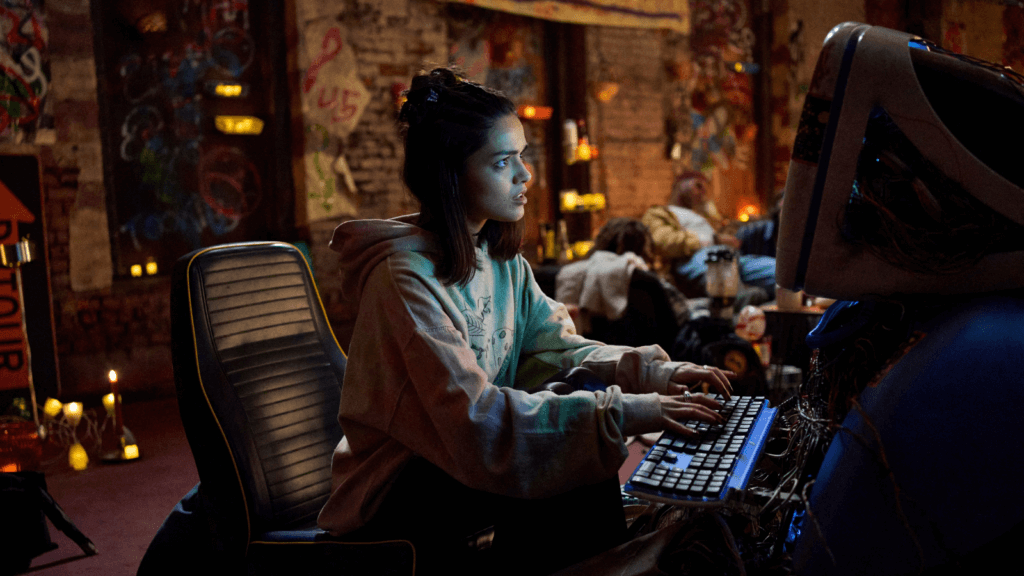
Mooney doesn’t experiment much with aesthetics for his debut beyond embracing retro imagery. Y2K looks like standard genre fare, albeit visualized with a few ‘90s-centric details. Cinematographer Bill Pope brings the sort of visual energy he delivered in Edgar Wright’s similarly themed The World’s End (2013). However, he avoids bravado camerawork in favor of a more straightforward presentation. More inspired is how Mooney and editor David Marks fashion elaborate hacking and computer system sequences for a throwback effect. Shots of Zegler’s fingers hammering away at a keyboard overlap with circuit board imagery—recalling comparable montages from movies such as Hackers and The Net, both made in 1995, when Hollywood believed the web was capable of anything. The belligerent entity behind the electronic rebellion is conveyed with pixelated digital animation, which looks like a design out of The Lawnmower Man (1992) or Virtuosity (1995).
Although Y2K would most accurately be called a horror-comedy, Mooney offers no genuine scares. A shocking display of gore or two may cause a momentary gasp. But the most disturbing moment comes when several characters hide inside a porta-potty, and a robot knocks it over. Other than some germaphobic trauma, don’t worry about nightmares, unless you have an irrational fear of Fred Durst. After the movie’s multiple references to Limp Bizkit, Durst shows up, playing himself in an extended gag that drags down the movie’s last third. The joke is simply this: Remember Fred Durst? Well, he still exists. And look, he’s in the movie! If you were a fan of Durst’s work, then doubtless, Y2K will play differently for you. Personally, I was a senior in high school in 1999, about the age of Mooney’s characters. But I never listened to Durst’s music, so his presence seems oddly specific. Perhaps a brief cameo would have sufficed.
Then again, Mooney and Winter don’t write jokes to use them only once. Their screenplay repurposes every laugh with diminishing returns, leaving the characters underdeveloped and undercut by the referential humor. By the end, Y2K leaves only a feeling of déjà vu, not only for the jokes but also for the period and the movie’s repetitive cinematic references. Its default mode is remember when. No wonder it was produced by Jonah Hill, who also made his directorial debut with a nostalgic film, called Mid90s (2018). Mooney’s affection for the period is admirable and relatable, and frankly, as a fan of horror-comedies who lived through the Y2K craze, I should be the ideal audience for this sort of thing. But so little of it amounts to more than a pastiche of other movies and memorable quirks from 1999, assembled with a random, loose energy that might work better if you’re under the influence.
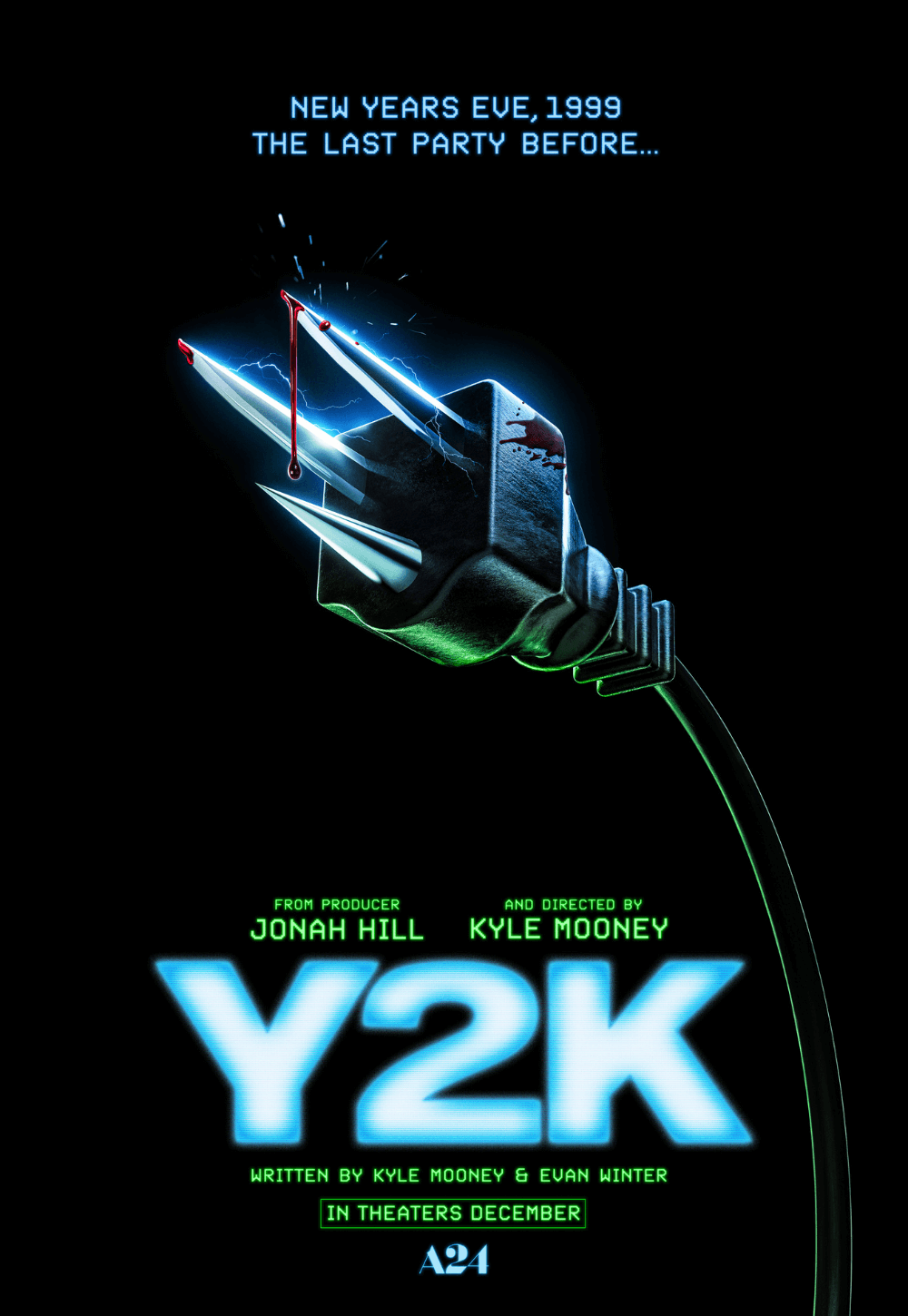
Consider Supporting Deep Focus Review
I hope you’re enjoying the independent film criticism on Deep Focus Review. Whether you’re a regular reader or just occasionally stop by, please consider supporting Deep Focus Review on Patreon or making a donation. Since 2007, my critical analysis and in-depth reviews have been free from outside influence. Becoming a Patron gives you access to exclusive reviews and essays before anyone else, and you’ll also be a member of a vibrant community of movie lovers. Plus, your contributions help me maintain the site, access research materials, and ensure Deep Focus Review keeps going strong.
If you enjoy my work, please consider joining me on Patreon or showing your support in other ways.
Thank you for your readership!
Brian Eggert | Critic, Founder
Deep Focus Review


